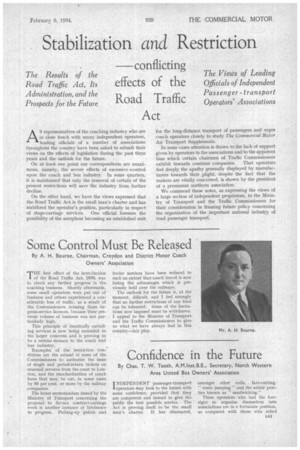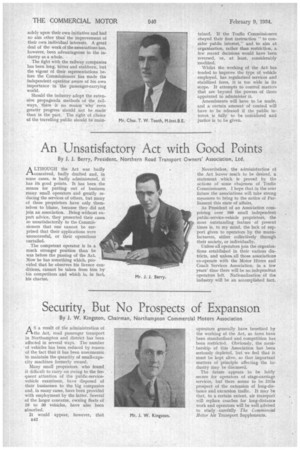Confidence in the Future
Page 99

Page 100

If you've noticed an error in this article please click here to report it so we can fix it.
By Chas. T. W. Tooth, A.M.Inst.B.E., Secretary, North Western Area United Bus Owners' Association ' NDEPENDENT passenger-transport
operators may look to the future with some confidence, provided that they are competent and intend to give the public the best possible service. The Act is proving itself to be the small man's charter. It has eliminated,
amongst other evils, fare-cutting, " route jumping" and the unfair practice known as "sandwiching."
Those operators who had the foresight to organize themselves into associations are in a fortunate position. as compared with those who relied solely upon their own initiative and had no aim other than' the improvement of their own individual interests. A great deal of the work of the associations has, however, been advantageous to the industry as a whole.
The fight with the railway companies has been long, bitter and stubborn, but the vigour of their representations before the Commissioners has made the independent •operator aware of his own importance in the passenger-carrying world.
Should the industry adopt the extensive propaganda methods of the railways, there • is no -reason' why' even greater progress should not be made than in the past, The right of choice of the travelling public should be main
tamed. If the Traffic Commissioners obeyed their first instruction "to consider public interest," and to aim at organization, rather than restriction, a few recent decisions would have been reversed, or, at least, considerably modified.
Whilst the working of the Act has tended to improve the type of vehicle employed, has regularized services and stabilized fares, it is too wide in its scope. It attempts to control matters that are beyond the powers of those appointed to administer it.
Amendments will have to be made, and a certain amount of control will have to be released if the public interest is fully to be considered and justice is to be given.




































































































































































